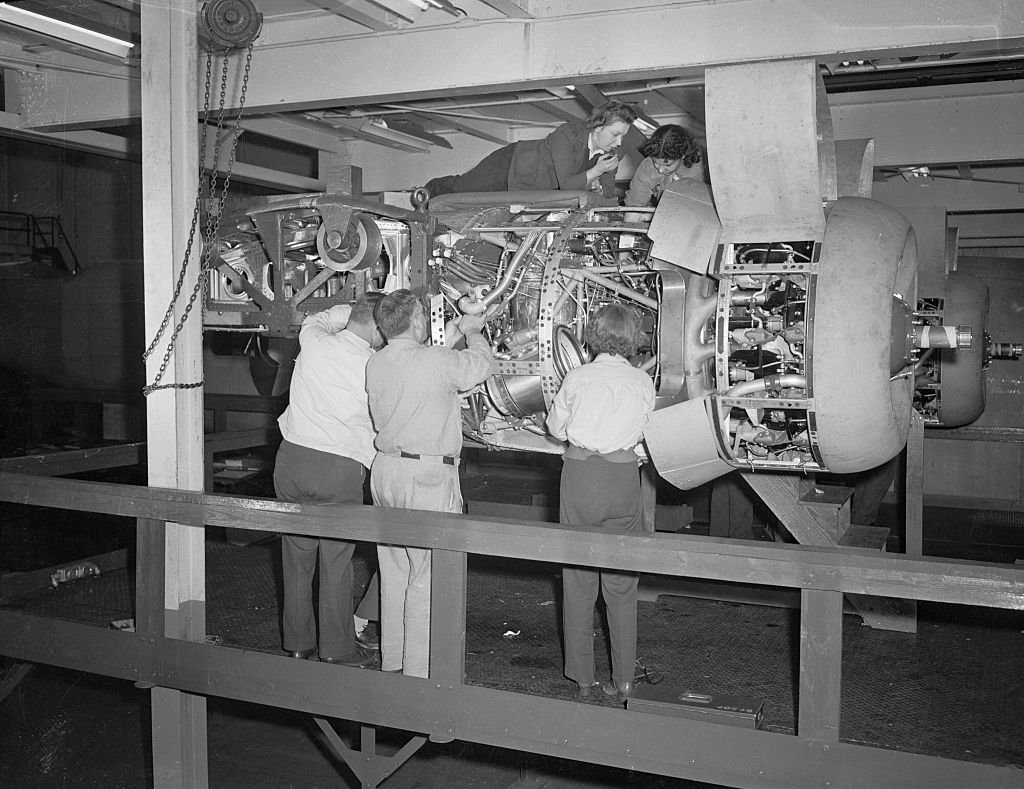If This is a War, It’s More Willow Run Than Stalingrad

The lockdowns are unsustainable. While closing public places—schools, universities, restaurants, bars, gyms, et cetera—might have contained the spread of coronavirus, they cannot last. Already tens of thousands of Americans have lost their jobs. Unemployment websites are allegedly crashing as traffic floods in. Bank of America warns that a recession is already here. Of course, governments can and should step in to help businesses and citizens who are struggling, but governments do not have limitless resources with which to help. The longer the closures drag on, the poorer and angrier people will become.
This will have more than economic consequences. Lonely and mentally ill people are further isolated. Victims of domestic violence are cooped up with their abusers. It cannot go on indefinitely. We know that if the coronavirus runs rampant, it could cause the nation’s health care system to break down, but if the economy tanks we could be looking at the breakdown of society.
Inspiration must be drawn from countries like South Korea, Japan, and Singapore, which appear to have contained the virus without shutting down. (Of course, the virus could still spread through those countries in the future, but in such novel circumstances we must work with what we have.) Looking at these nations, I began to think that if the coronavirus is going to inspire a wartime mentality—Trump is calling himself a wartime president—we have to think less about Stalingrad and more about Willow Run.
What do I mean? Well, our main response to the coronavirus has been to retreat into our bunkers and hide from the enemy. There is nothing wrong with social distancing in essence. All the countries that I mentioned have established social distancing to some extent. In South Korea, the government advised against attending even church services. In Japan, events were canceled. Still, most people’s work has been largely unaffected.
If that is the “Stalingrad” approach, then what was Willow Run? As the United States entered World War II, enormous amounts of industry were devoted to armament manufacturing. Willow Run, in Michigan, was a plant built by the Ford Motor Company to manufacture aircraft, especially the B-24 Liberator bomber. With limited experience and under immense pressure, Ford employees produced hundreds of B-24s every month.
When I say we have to think of Willow Run, then, I mean we have to think about equipping ourselves to defeat the virus without ruining our economies. One of the most absurd aspects of this period has been the deliberate downplaying of the importance of masks. You would think the ubiquitous mask wearing in Asian countries would suggest they have an essential function in an epidemic. Not so, Americans and Europeans were told. Masks only work if you are sick! Save them for health care professionals! This raised more questions than it answered. If masks are so useless, why do doctors need them? And are we not socially distancing ourselves in large part because we could be sick and unaware of the fact? As Zeynep Tufekci writes for the New York Times, “even surgical masks protect a bit more than no mask at all.” Some commentators were displaying the clever-clever fondness for “debunking” what seems to be common sense, but in fairness I think medical professionals were honestly concerned about shortages, which have indeed arrived. But the societal response to shortages should not have been strict rationing, as if there is a finite supply of masks in the world, but furious mass production. It is not too late.
Testing was crucial in South Korea, as it allowed authorities to locate clusters of infections. Hundreds of thousands of tests were performed, while in the U.S. it seemed as if you could only get a test if you were a Hollywood actor or NBA basketball player. Containing the spread of the coronavirus will depend on solid epidemiology, and the U.S. and other nations must create more testing sites. Progress has been made, but Michael Mina of the Harvard T.H. Chan School of Public Health has said: “The testing capacity remains extraordinarily limited compared to where we should be. And in many ways we are absolutely flying blind at the moment.”
Finally, hospitals must have the equipment they need to treat the sick. Anyone who knows my writing could guess that I am not a big fan of Germany’s Angela Merkel, but the Germans have done an impressive job of equipping their hospitals. Germany has 29 critical care beds per 100,000 inhabitants, while the U.K., appallingly, has fewer than seven. The U.S. has an impressive number of critical care beds, but a high occupancy rate, as well as a low rate of normal hospital beds. Elon Musk, the ever-immature billionaire behind Tesla, said his company would make ventilators “if there is a shortage.” Pre-empting that shortage did not seem to have occurred to him, though to Mr. Musk’s credit he has since begun work on producing ventilators and masks. To speed up progress, red tape should be slashed at the FDA with the enthusiasm of El Cid.
All of this costs money, of course, and that money comes from the taxpayer. Industry and entrepreneurialism being diverted from their normal purposes is expensive as well. But while I will cheerfully admit that I am no economist, if mobilizing industry to provide these resources will be even a fraction as expensive as prolonged shutdowns, I would be very happy for someone to tell me how. We—that is, people in every nation in the world—have to keep the unaffected working and the ill in isolation. That, as ambitious a goal as it might be, is our only hope if we are to walk the treacherous path between twin catastrophes.
Ben Sixsmith is a British writer living in Poland who has written for Quillette, the Spectator USA, the Catholic Herald, Public Discourse, and Unherd.
Comments